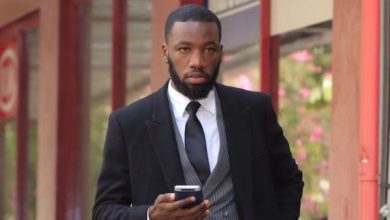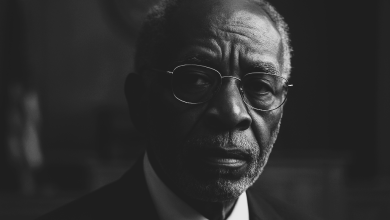Justice Delayed Is Justice Denied: A Legal Examination of Systemic Failures in Africa
By: Funke Jones

Justice is the foundation of any democratic society, yet across Africa, delayed court proceedings continue to rob citizens of their fundamental rights. The adage “Justice delayed is justice denied” is more than a cliché—it is a painful reality for many who seek legal redress but find themselves trapped in the labyrinth of bureaucratic inefficiencies, corruption, and under-resourced judicial systems.
Using Nigeria and South Africa as case studies, this article will analyze the impact of delayed justice by highlighting two landmark cases that exposed deep flaws in their legal systems.
Nigeria: The Orji Uzor Kalu Case (2007–2019) – A Tale of Stalled Justice
Nigeria’s judicial system is notorious for its protracted trials, often stretching over decades. One of the most infamous examples of delayed justice is the case of Orji Uzor Kalu, a former governor of Abia State, who was accused of corruption and money laundering.https://www.efcc.gov.ng/efcc/
In 2007, the Economic and Financial Crimes Commission (EFCC) charged Kalu with diverting ₦7.65 billion (approximately $19.4 million) from the Abia State treasury. However, despite the weight of the allegations, his case dragged on for twelve years, bouncing between courts due to adjournments, technicalities, and legal loopholes.
It was only in December 2019 that the Federal High Court in Lagos finally convicted him, sentencing him to 12 years in prison. But in an unexpected twist, in May 2020, the Supreme Court of Nigeria nullified the conviction on procedural grounds, stating that the trial judge had been improperly elevated to the Court of Appeal before concluding the case.
This decision effectively reset the case, wasting years of legal proceedings and eroding public trust in the judiciary. Kalu, now a sitting senator, remains free, with no fresh trial in sight.
Implications
- Loss of public confidence: Many Nigerians see the justice system as a tool for the powerful to manipulate rather than a system that ensures fairness.
- Encouragement of corruption: The delay in prosecuting high-profile figures emboldens corrupt politicians, knowing they can exploit the system’s weaknesses.
- Legal inefficiencies: The case exposed deep flaws in Nigeria’s judicial structure, where high-profile cases suffer excessive delays due to legal technicalities.
South Africa: The Marikana Massacre Case (2012–Present) – A Decade of Delayed Accountability
South Africa, despite its progressive legal framework, has also struggled with delayed justice, especially in cases involving state misconduct. The Marikana Massacre of August 16, 2012, remains one of the darkest days in post-apartheid South Africa.
On that day, police opened fire on striking mine workers at the Lonmin Platinum Mine in Marikana, killing 34 miners and injuring 78 others. The workers were demanding better wages and working conditions, but their protest ended in bloodshed—marking the worst incident of police violence in democratic South Africa.
Following the massacre, the government set up the Farlam Commission of Inquiry in 2013. The commission took two years to complete its investigation, finally releasing a report in 2015. The findings held the police, Lonmin management, and political figures responsible for the events. However, nearly 12 years later, no single police officer or government official has been held accountable in court.
Implications
- Lack of closure for victims: Families of the slain miners continue to seek justice, but with no convictions, their grief remains unresolved.
- State impunity: The case has reinforced the perception that law enforcement officials and political elites can act without consequences.
- Judicial sluggishness: The failure to prosecute those responsible highlights systemic weaknesses in South Africa’s justice system, particularly in cases where the state is implicated.
Why Does Justice Move So Slowly?
1. Court Backlogs and Case Overload
Both Nigeria and South Africa suffer from overwhelming case backlogs. Judges handle thousands of cases, leading to significant delays in proceedings.
2. Legal Technicalities and Appeals
In both case studies, legal technicalities—such as improper judicial appointments (Kalu’s case) and prolonged inquiries (Marikana)—stalled justice. The ability of powerful defendants to exploit these loopholes further exacerbates the problem.
3. Political Interference and Corruption
In Nigeria, political figures often manipulate the system to delay or overturn convictions. In South Africa, the government’s reluctance to prosecute police officials involved in the Marikana massacre raises concerns about political interference in judicial processes.
4. Underfunding of the Judiciary
A weak judicial infrastructure in both countries contributes to slow justice. Courts lack digital case management systems, adequate staffing, and modernized procedures to expedite trials.
Conclusion: The Cost of Delayed Justice
The cases of Orji Uzor Kalu in Nigeria and the Marikana massacre in South Africa demonstrate how delayed justice erodes trust in the legal system, encourages impunity, and denies victims the closure they deserve.
For Africa’s legal systems to function effectively, governments must invest in judicial reforms, reduce case backlogs, and ensure that justice is swift, fair, and free from political influence. Without such changes, the saying “Justice delayed is justice denied” will continue to define Africa’s legal landscape—much to the detriment of its citizens.




